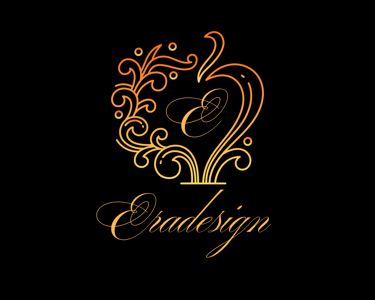Why is mental health important?
Mental health is important because it affects how we think, feel, and act, and it's a key component of overall health and well-being:
Coping with stress: Mental health helps us deal with the stresses of life.
Relationships: Mental health is important for having good relationships with family, friends, and community.
Work and school: Mental health can affect how well we work and learn.
Physical health: Poor mental health can negatively impact physical health, and vice versa. For example, people with depression have a higher risk of developing heart disease.
Suicide: Suicide is the second leading cause of death for people between the ages of 10–14 and 24–34, and the third leading cause of death for people ages 15–24.
Stigma: There's a stigma around mental health, which can lead to discrimination, bullying, and fewer opportunities.
Our mental health can affect factors like:
Your self-esteem and self-worth.
The way you socialize with others.
The way you find meaning and value in your life.
Your psychological functioning as it’s tied to memory and problem-solving.
Your physical well-being.
Whether or not you have a mental health disorder like anxiety or depression.
Mental health is important at every stage of life, from childhood through adulthood.
Empower Your Mental Health Journey: Discover Techniques for Well-being
Understanding Mental Health: Mental health is the cornerstone of our well-being, encompassing our emotional resilience, psychological fortitude, and social connectedness. It shapes our thoughts, feelings, and actions, influencing how we navigate life's challenges and celebrate its triumphs. From the innocence of childhood to the complexities of adulthood, nurturing positive mental health is essential for living a fulfilled and purposeful life.
Breaking Myths and Embracing Realities: One common misconception is the binary view of mental health—one is either mentally healthy or unwell. In truth, our mental state exists on a spectrum. Even the most resilient among us can face periods of emotional turbulence, shifts in behavior, or strained relationships. Recognizing this continuum is the first step towards seeking the support and techniques that empower us to thrive.
The Power of Supportive Techniques: Just as we prioritize physical health through exercise and nutrition, our mental well-being requires intentional care. Embrace transformative practices such as life coaching, therapeutic art, and self-love programs. These techniques aren't just about healing; they're about empowerment. They provide practical tools to manage stress, foster creativity, and cultivate a deeper sense of self-compassion and purpose.
Your Journey Towards Resilience: Imagine a life where stress is managed with grace, productivity flows effortlessly, and personal potential is fully realized. It's within reach. Whether you're seeking to navigate parenting challenges, enhance workplace efficiency, or simply reconnect with your inner strength, investing in your mental health is an investment in your future happiness and success.
Reach Out, Embrace Change: If you're feeling overwhelmed by constant stress, isolation, or the demands of daily life, know that you're not alone. Seeking help isn't a sign of weakness; it's a courageous step towards reclaiming your joy and well-being. Discover the transformative power of mental health support today—because your journey towards resilience begins with self-care and ends with a life well-lived.
Your approach to supporting clients with mental illness is comprehensive and holistic. Here’s how each service can contribute effectively:
1. Life Coaching: Provide personalized guidance in personal development, motivation, consciousness, and self-love. Help clients build resilience, set meaningful goals, and develop effective coping strategies tailored to their individual needs.
2. Energy Healing and Reiki Therapy: Offer practices such as Access Bars, chakra balancing, and aura cleaning to promote relaxation, reduce stress, and restore energetic balance. These techniques complement traditional therapies, supporting emotional and physical well-being.
3. Therapeutic Art Lessons: Utilize art therapy activities to engage clients in creative expression. This therapeutic outlet helps in processing emotions, enhancing self-awareness, and addressing issues like anxiety, PTSD, stress reduction, and depression.
4. Karma Removal Program: Guide clients through processes to release past traumas, negative energies, and limiting beliefs. This program focuses on inner child work, addressing traumas, past life issues, and transforming belief systems for emotional healing.
5. Self-Love Programs: Facilitate journeys towards self-compassion, acceptance, and empowerment. Through exercises and reflections, assist clients in enhancing self-esteem, self-awareness, self-confidence, and overcoming self-sabotaging behaviors.
Mental Health
Erika's journey
from a troubled childhood to becoming a multi-faceted life coach is a testament to her resilience and determination. Growing up in an environment marred by verbal, emotional, and physical abuse, she faced significant challenges that would shape her future path. Seeking healing and a fresh start, Erika made the bold decision to leave her native country and relocate to the United States.
In her new home, Erika embarked on a journey of self-discovery and healing. She immersed herself in self-improvement literature, finding solace and guidance in books that offered insights into personal growth and recovery. Alongside her reading, Erika sought out spiritual courses, recognizing the power of holistic approaches to healing and self-development.
As she progressed in her own healing journey, Erika felt drawn to help others who might be facing similar struggles. This led her to pursue formal training in life coaching, where she could channel her experiences and newfound knowledge into supporting others. Her dedication to this path is evident in the diverse and comprehensive certifications she has acquired.
Erika's training as a Certified 7 Pillar Life Coach Master equipped her with a well-rounded approach to coaching, covering various aspects of life and personal development. Building on this foundation, she specialized further by becoming a Certified Self-Love Master Practitioner, recognizing the crucial role of self-love in overcoming past traumas and building a fulfilling life. Her certification as a Certified Therapeutic Art Life Coach added another dimension to her practice, allowing her to incorporate creative expression as a tool for healing and growth.
Through these varied certifications, Erika has developed a unique coaching style that draws from her personal experiences, spiritual insights, and professional training. Her journey from survivor to empowered coach serves as an inspiration to her clients, offering hope and practical guidance for those seeking to overcome their own challenges and create positive change in their lives.


